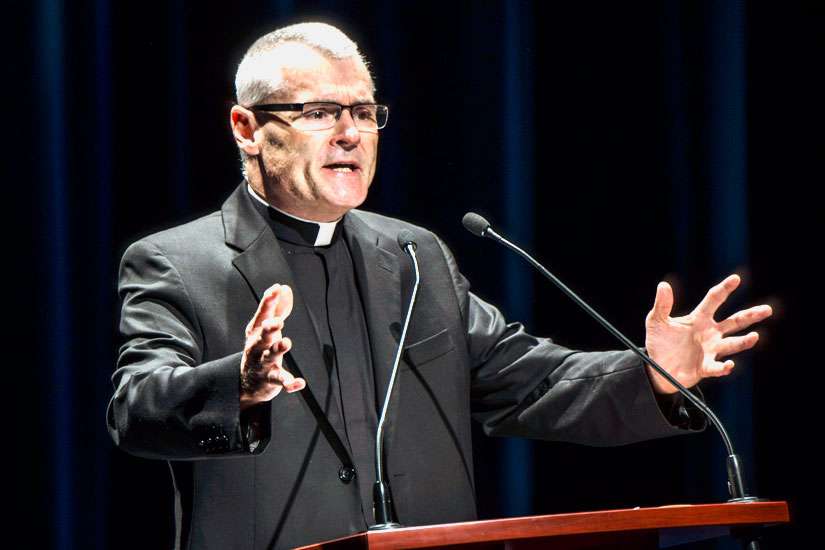In this case, the villages will be Basilian schools in Canada, France, the United States and Colombia and the disciples will be pairs of Basilian priests.
At a July 11 gathering of teachers and school administrators from the Basilians’ schools on three continents, held at Toronto’s St. Michael’s College School, Basilian superior general Fr. George Smith launched the Basilian Network for Education and the New Evangelization. The network, inspired by the 2011 Synod on the New Evangelization for the Transmission of Christian Faith, is a way for the Basilian order to keep its tradition in education alive in an era of fewer vocations to the priesthood, Smith said.
“The smaller we get as a religious congregation, the more important it is that we deepen our understanding of communion and mission,” Smith told about 60 teachers and administrators from Basilian schools in Annonay, France, Cali, Colombia, Detroit and Toronto.
Ten Basilian priests will be paired in two-man teams to visit Basilian schools on their regular professional development days. The Basilians will invite teachers and staff into an ongoing discussion on the tradition and meaning of Catholic education. But before that, the group that meets with the Basilians will get a base-community-like experience of Christian communion, Smith said.
The original experience will be extended via e-mail, Skype and other forms of communication so that teachers at Basilian schools have the opportunity to develop their sense of vocation both as baptized Christians and as Catholic educators.
“Our schools aren’t Catholic because our students wear uniforms or are perhaps more disciplined,” Vancouver’s Basilian Archbishop Michael Miller told the inaugural BNENE conference. “Our schools are Catholic because they proclaim a name, the name above every other name.”
Miller once worked in the Vatican for the Congregation for Catholic Education.
Catholic teachers must be evangelizers, but not in the sense of “comical, hypocritical and strange” televangelists, but in the sense that they should become instruments of ever growing communion with Christ, Miller said.
“We must go from seeing the school primarily as an institution to seeing the school primarily as a place of communion,” he said.
Education and the meaning of education is a theme that comes up repeatedly in Pope Francis’ writing to the Church, said Miller.
“Francis’ call for a culture of encounter begins and ends with an encounter with Jesus,” he said.
Once a teacher has an experience of Christian communion they will discover and operate from a Catholic understanding of the world, according to Miller.
Fr. Mario D’Souza, a professor of the theology of education at the University of St. Michael’s College at the University of Toronto, will be the first executive director of the Basilian Network.


